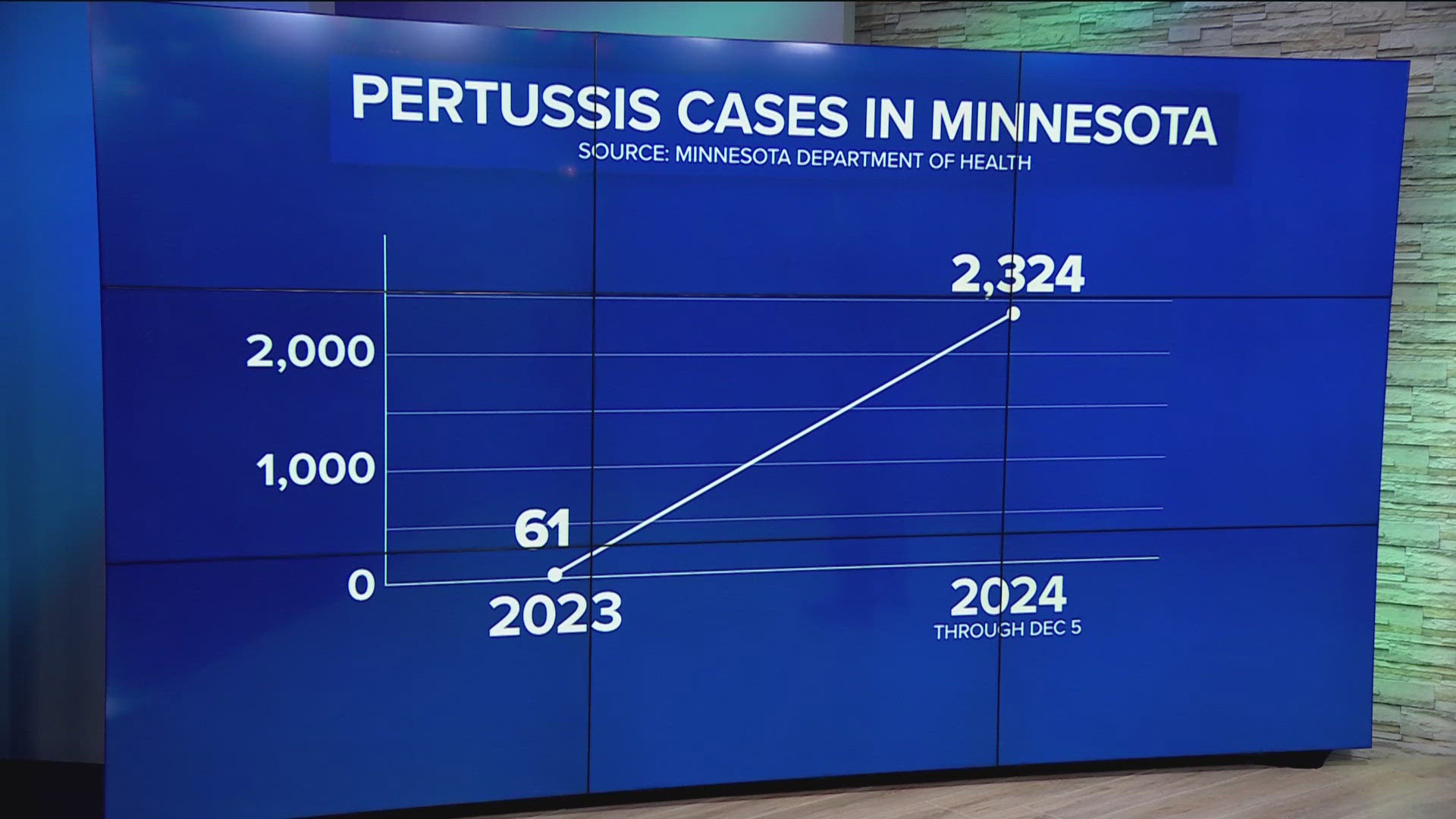MINNEAPOLIS — After bottoming out during COVID, cases of whooping cough -- also known as pertussis -- have increased exponentially in Minnesota this year as the disease makes a comeback to pre-pandemic levels across the U.S.
According to Minnesota Department of Health data, cases have risen from 61 last year to more than 2,000 so far in 2024, the highest reported totals since 2012. Although the highly contagious bacterial lung infection can impact anyone, most cases are circulating among kids with 14 as the median age.
"Especially in younger kids, under one year old, under six months old, they get hit the hardest with pertussis," Children's Minnesota pediatrician Dr. Liz Placzek said. "It may seem like a cold at first, but we've seen some really serious complications and prolonged cough, including periods of apnea or stopping breathing. That's what really scares us about the youngest kids and pertussis."
At one time, the U.S. reported hundreds of thousands of whooping cough cases a year, prior to the introduction of a vaccine in the 1940s. In Minnesota, pertussis cases peaked in the decade prior to World War II, with more than 4,000 cases reported in 1933 and 1937.
After the vaccine largely extinguished the disease during the second half of the 20th century, Minnesota again saw a major pertussis outbreak in 2012 -- with the 4,000-case threshold surpassed that year for the first time in seven decades -- before falling to extremely low transmission levels during the social isolation period brought on by COVID.
Now, in 2024, whooping cough has made a resurgence, brought in part by a dip in vaccine rates. According to MDH data, the number of kindergarten students with their updated "DTap" -- the name of the vaccine series for young kids that includes pertussis -- dropped from 92 percent in 2019-2020 to 88 percent in 2022-23.
That's part of a broader nationwide trend since COVID, which fueled more vaccine skepticism and a drop in routine vaccination rates for not only pertussis but also other serious diseases like measles.
"Maintaining our vaccine rates, whether it's measles, whether it's pertussis, whether it's influenza, whether it's COVID," said Dr. Jason Newland with Nationwide Children's Hospital, "will make our society and our most vulnerable healthy."
The CDC recommends whooping cough vaccines throughout infancy at two months, four months, six months and 15 to 18 months, and then another dose at 4 to 6 years around kindergarten age. A "Tdap" dose is then recommended at age 11 or 12, to prevent the vaccine from waning. Pregnant women are also recommended to get the vaccine, to pass protection along to the baby.
"As a pediatrician, we know how well these vaccines work," Dr. Placzek said, "and we know how much kids benefit from that protection. Vaccines are the number one way to prevent against pertussis and they are safe and effective."

